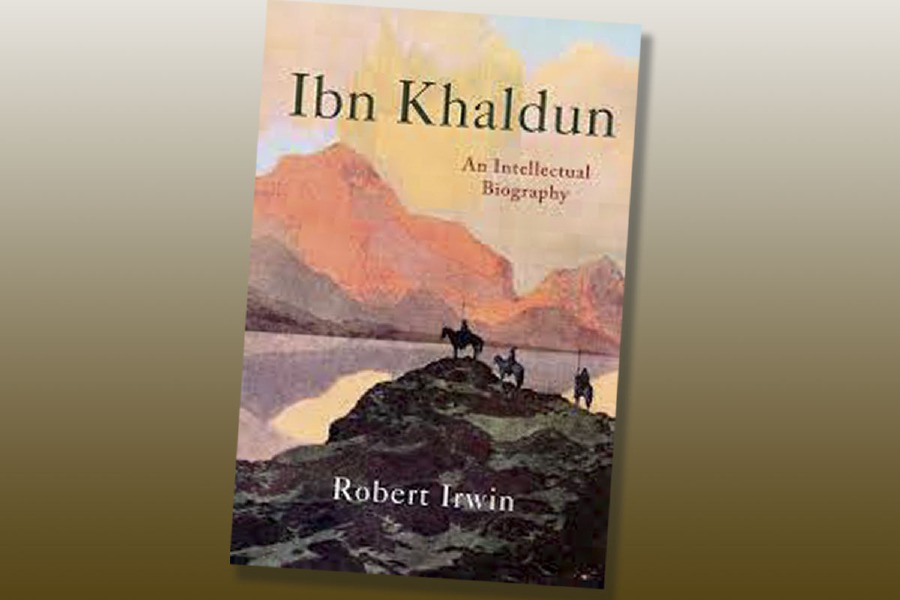TO the West, Ibn Khaldun had a Western view of history. There was a "perfume of the Renaissance" about him.
A number of French scholars revealed Ibn Khaldun as "a modern Frenchman" and one who have would have approved of the French empire in North Africa.
He may be regarded as a fellow traveller, albeit separated by some 600 years.
But Malaysian scholars and the social science corpus have been so much ambivalent, more of being significantly sceptical of his works. There is a disconnect between Ibn Khaldun and the practice of modern social science.
We have not given him and his Muqaddima their rightful and proper place in our campuses.
We proclaim the significance of the Muqadimma to knowledge, society and civilisation — in understanding the disciplines of history, and the various human sciences, but we scantly study him in the modern context.
We have not integrated the Muqadimma as a course or a text in the social science disciplines.
My queries have not managed to find Ibn Khaldun in our sociology and communication departments. He seems to have been lost "among the dunes of the Sahara".
Or, have we lost our way in the sea of modernity? The social science corpus has been silent on his perspective and scholarship.
Social science in Malaysia, for example, has made references to him, but only to studies on Islamic civilisation — a hagiographic narrative.
He has not been located as providing an alternative form of knowledge, and certainly far from critically examining his magnum opus, the political and intellectual climate that he thrived on. By any standards, Ibn Khaldun is a modern sociologist.
The Muqadimma comes close to becoming a comprehensive encyclopaedia. It was produced in an age where encyclopaedias were in fashion in the Arab world, particularly in Mamluk Egypt and Syria.
The work is a vast guide to the cosmos, humans and their government, literature, animals, plants and history.
Robert Irwin in Ibn Khaldun: An Intellectual Biography (2018) tells us Ibn Khaldun's "ways of thinking are very different from my own".
Surely he makes an attractive option for academic courses and readings.
This sentiment echoes more of the Western engagement with Ibn Khaldun. The same cannot be said of campuses here.
The West has attempted to modernise Ibn Khaldun. Some have construed the attempt as "denaturing" him.
Ibn Khaldun has been accused of "anticipatory plagiarism" — a prejudiced view of the polymath rendering an injustice to his corpus. Where is our response to Spengler and Toynbee?
The first few chapters of the biography appear to show that Irwin was too harsh on the polymath, thinker and historian. The early part of Irwin's narrative reflects a dreary, dark and gloomy Khaldunian experience. We are dragged into decay in an unexpected way.
Nevertheless, the narrative provides for a re-understanding of our society, politics and modern thought. Ibn Khaldun unravels a non-linear conception of the social sciences, history and society.
We are configured by a cyclical environment. His work is only waiting for Muslims, and those who cry against a Eurocentric social science to revamp its epistemology.
We have not done justice to his corpus. Even in Islamic-oriented universities, he has not been optimally explored, interpreted and positioned in a proper framework and perspective.
We have discarded the Divine and the conformity to religious laws in the study of human society. Ibn Khaldun's work, thus, provides the basis for de-secularising the social science corpus.
It also provides a suitable grounding for debates on facts and factuality within the matrix of the segregation of human and Revealed Knowledge. His writings do not make a distinction between the two.
Our study of Sociology, History and the rest of the Social Sciences are devoid of the Khaldunian reservoir. There are no subjects on Ibn Khaldun in the Malaysian academic social science landscape.
And, there are no attempts to place the Muqaddima as an alternative text. For example, there is a blinkered view of Ibn Khaldun and his works in reviewing the social science curriculum.
The Muqaddima has to be central in the process. It can/should/must be seen and used as a modern text.
The Muqaddima provides us with an alternative/Islamic perspective on history and civilisation.
The writer is professor of social and intellectual history, International Institute of Islamic Thought and Civilisation, International Islamic University Malaysia





